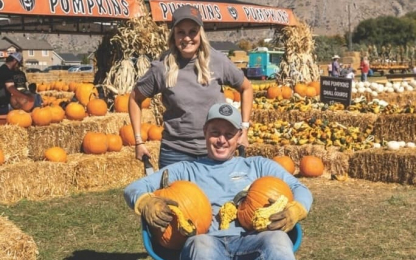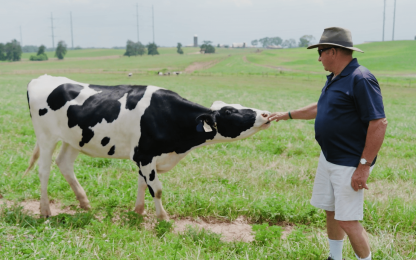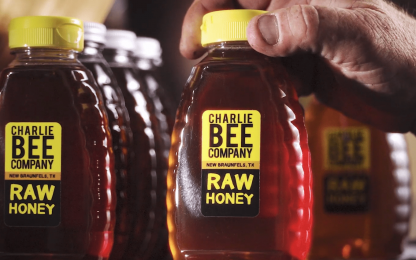Kingsburg Orchards is a family-owned operation in the heart of California’s San Joaquin Valley where George and Mike Jackson, alongside their team, produce over 200 varieties of fruits.
George and Mike grow everything from cherries, apriums, apricots, peaches and nectarines, to peacharines, pluots, plumcots, plums, apple pears, kiwis and apples.
A family tradition
The Jackson family began farming in England in 1813. Years later, they brought their legacy across the Atlantic. They came first to Tennessee and then to California where George’s father, Hershel, settled the family in Kingsburg, and they’ve stayed ever since.
George, current owner of Kingsburg Orchards, was born on the farm in 1936. His son, Mike, now serves as president of the operation, following in the footsteps of the many generations of Jacksons who came before him.
Continuous innovation
The Jackson’s mission is to consistently provide their customers with the sweetest, most flavorful fruit that exceeds their quality and value expectations year-round. “We’ve found our niche in the fruit business, continuously upgrading into better flavor profiles. We’re trying to give a product that is pleasing to the consumer,” Mike said. This mission has led them to develop new and interesting fruit varieties, such as the Dinosaur Egg pluot, which they market to young people.
Pluots are a cross-pollination of plums and apricots resulting in a wide variety of colors, both inside and out, as well as unique flavors. Some pluots have more plum and some have more apricot, but all are sweet and juicy. The Dinosaur Egg’s shape, much like that of an egg, and the wide variety of colors and flavors make this fruit fun to eat. The Jacksons have even developed dino101.com, a website full of pluot trivia and activities designed for young people, as well as their teachers and parents.
In addition to new flavor profiles, the Jacksons actively seek out ways to increase efficiency on their operation. For instance, they frequently travel across the world to learn from other producers about topics such as mechanization and modernizing packing facilities, to bring back to Kingsburg Orchards.
Integrated Pest Management
Sustainability is an important tenant at Kingsburg Orchard. While the Jackson’s produce is not grown organically, they utilize integrated pest management techniques.
Field mice, gophers and rabbits present a serious threat to orchard health. Mice feed on the bark at the base of the trees and gophers and rabbits feed on their roots. These animals particularly threaten younger trees, as they can girdle and kill the tree quickly, but they can cause extensive damage to older trees as well. Gophers also chew through irrigation lines, causing water loss.
In place of traditional methods, the Jacksons build an owl box very 24 acres. Attached to a 200-foot pole, they offer barn owls a place to build their nests, choosing to make their homes at orchard because of the plentiful food supply nearby. Throughout the spring and summer, the owls will then swoop through the fields, eating up the menacing rodents. Each owl family consumes over 1,000 rodents per year.
Relying on a strong team
When it comes to producing the best possible product, the Jacksons understand that it all comes down to having a good team. “The key of running an operation of this size, is to have good people working for us,” Mike said. “We have people who having outstanding skillsets and who are very dependable. I’m very thankful for each one of my employees.”
In addition to a strong staff, Kingsburg Orchard also values the employees of Fresno Madera Farm Credit as members of their team. “Farm Credit has played a great role in enabling us to continue to modernize, expand and build facilities that are state of the art, enabling us to provide a high quality, safe product to people all over the world,” Mike said.
The Jacksons built their first packing house in 1980 and, while it may have been small, it has survived the test of time. “I’ll never forget my dad, when we finished building it, put his arm around me and said, ‘This shed will last us the rest of our lives,” Mike said. Today, that once small facility has grown to be nearly a quarter of a mile long and is filled with new technology, thanks to help from Fresno Madera Farm Credit.
Reflecting on his decision to remain at the farm, George said, “It’s a great way of life for us. That’s why I chose agriculture. Growing up on the orchard as a child, I wanted my children, my grandchildren, to experience the same thing.”


